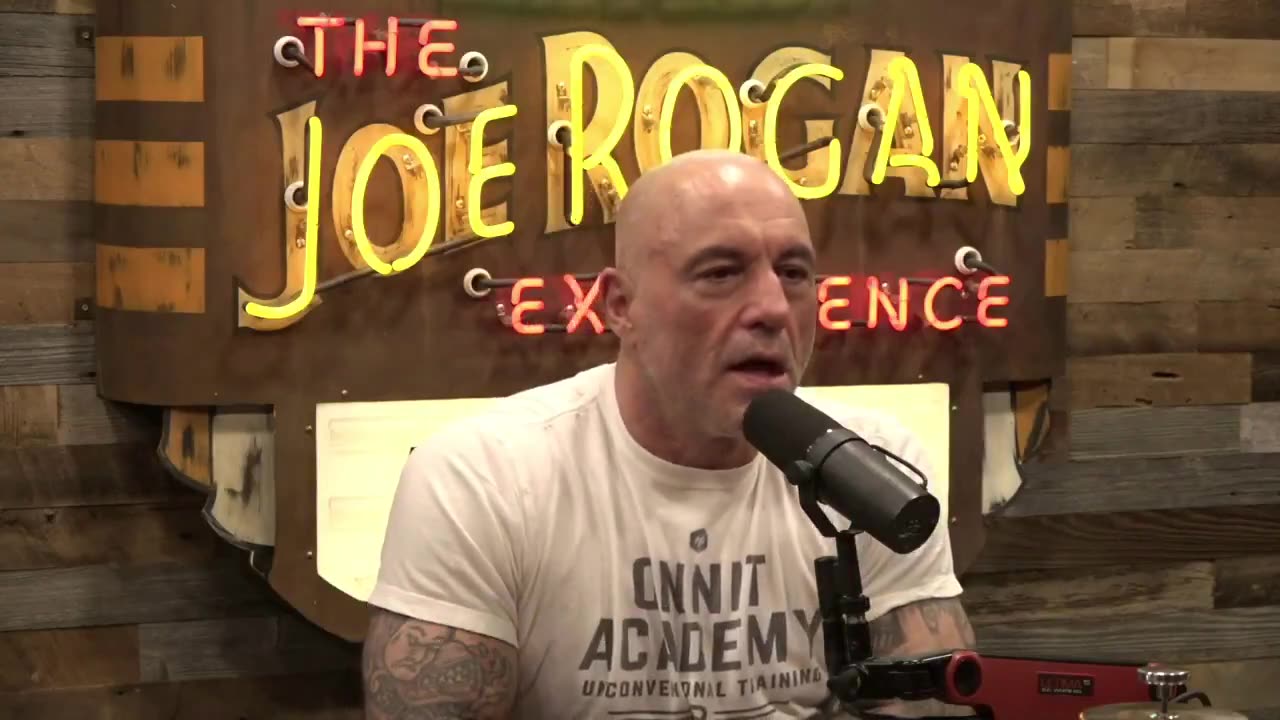Premium Only Content

Joe Rogan and Jillian Michaels spark debate on COVID vaccine concerns
Full podcast: https://rumble.com/v6ss44x-joe-rogan-experience-2313-jillian-michaels.html?mref=1bxo9j&mc=69gy3
In a gripping episode of The Joe Rogan Experience, Joe Rogan and fitness expert Jillian Michaels ignited a fiery discussion about the COVID vaccine, raising critical questions about its safety, administration, and classification as a “vaccine.” Their unfiltered exchange delved into widespread concerns about whether the public was fully informed about a technology argued to be an experimental gene therapy with significant risks.
The conversation spotlighted early warnings from biologist Bret Weinstein about flaws in the vaccine’s rollout, particularly the failure to aspirate—pulling back the syringe to check for a blood vessel—before injection. This oversight, even during high-profile televised events like the one involving Biden, raised doubts about adherence to standard protocols.
Typically, patients are monitored for 20 minutes post-injection due to potential severe reactions, yet this step appeared to be bypassed in some instances.
Skepticism surfaced over the decision to administer the vaccine to an elderly public figure on live television, given the known risks.
Raising such concerns often triggers accusations of spreading misinformation, despite evident inconsistencies in procedure. A tragic story amplified these doubts: a young man, connected through a friend, received both the COVID and flu vaccines on the same day. After a brief wait, he got into his car, suffered a possible seizure or blackout, crashed into a tree, and died.
The discussion challenged the “vaccine” label, arguing that the injection is an experimental gene therapy. Without aspiration, the injection could enter the bloodstream, spreading to organs like the heart and lungs, where the body might attack it as a foreign invader.
This process was linked to myocarditis, a condition where the heart scars permanently, as it cannot heal like other tissues. Unlike organs susceptible to cancer, the heart shuts down over time, leading to enlarged hearts and reduced cardiovascular function.
Weinstein’s early warnings drew heavy criticism, yet reports of heart issues, blood clots, and other complications have since emerged. The dismissal of these concerns by mainstream narratives was called out as stifling open inquiry. The perspective wasn’t anti-vaccine but rooted in a demand for transparency: if the technology is experimental, it should be presented honestly, not marketed as a conventional vaccine.
The episode underscored broader issues of transparency and the rapid rollout of a novel technology without, in their view, adequate scrutiny. Heart damage from these injections was described as permanent, with scarred hearts posing long-term risks. Questions persisted about why critical steps like aspiration were overlooked and why potential risks weren’t clearly communicated to the public.
-
 1:51
1:51
Asher Press
3 days agoBREAKING - FL Surgeon Gen proposes ban on ALL vaccine mandates in Florida.
3221 -
 LIVE
LIVE
Total Horse Channel
16 hours ago2025 Reno Snaffle Bit Futurity | Saturday
9,096 watching -
 LIVE
LIVE
Major League Fishing
2 days agoLIVE Tackle Warehouse Invitationals Championship, Day 2
269 watching -
 LIVE
LIVE
TheManaLord Plays
1 hour agoMANA SUMMIT - DAY 1 ($10,200+) | BANNED PLAYER SMASH MELEE INVITATIONAL
182 watching -
 LIVE
LIVE
I_Came_With_Fire_Podcast
14 hours agoCarolina Bays: The Lost Cataclysm You've Never Heard Of
271 watching -
![Mr & Mrs X - [DS] Trafficking Empire – The Pedo Network Island, The Cover-Up: Part 2 - Ep 6](https://1a-1791.com/video/fww1/f8/s8/1/y/p/x/f/ypxfz.0kob-small-Mr-and-Mrs-X-DS-Trafficking.jpg) 59:56
59:56
X22 Report
19 hours agoMr & Mrs X - [DS] Trafficking Empire – The Pedo Network Island, The Cover-Up: Part 2 - Ep 6
85.4K28 -
 1:03:07
1:03:07
Candace Show Podcast
1 day agoI’M BACK! And STILL Asking Questions (Sorry Brigitte). | Candace Ep 233
120K220 -
 13:13
13:13
Mrgunsngear
19 hours ago $6.46 earnedStreamlight TLR-1 HP Review: Can It Dethrone Surefire?
44.4K10 -
 1:26:34
1:26:34
Man in America
22 hours agoExposing the Cover-Up That Could Collapse Big Medicine: Parasites
98.9K84 -
 1:12:09
1:12:09
Wendy Bell Radio
8 hours agoPet Talk With The Pet Doc
28.3K48